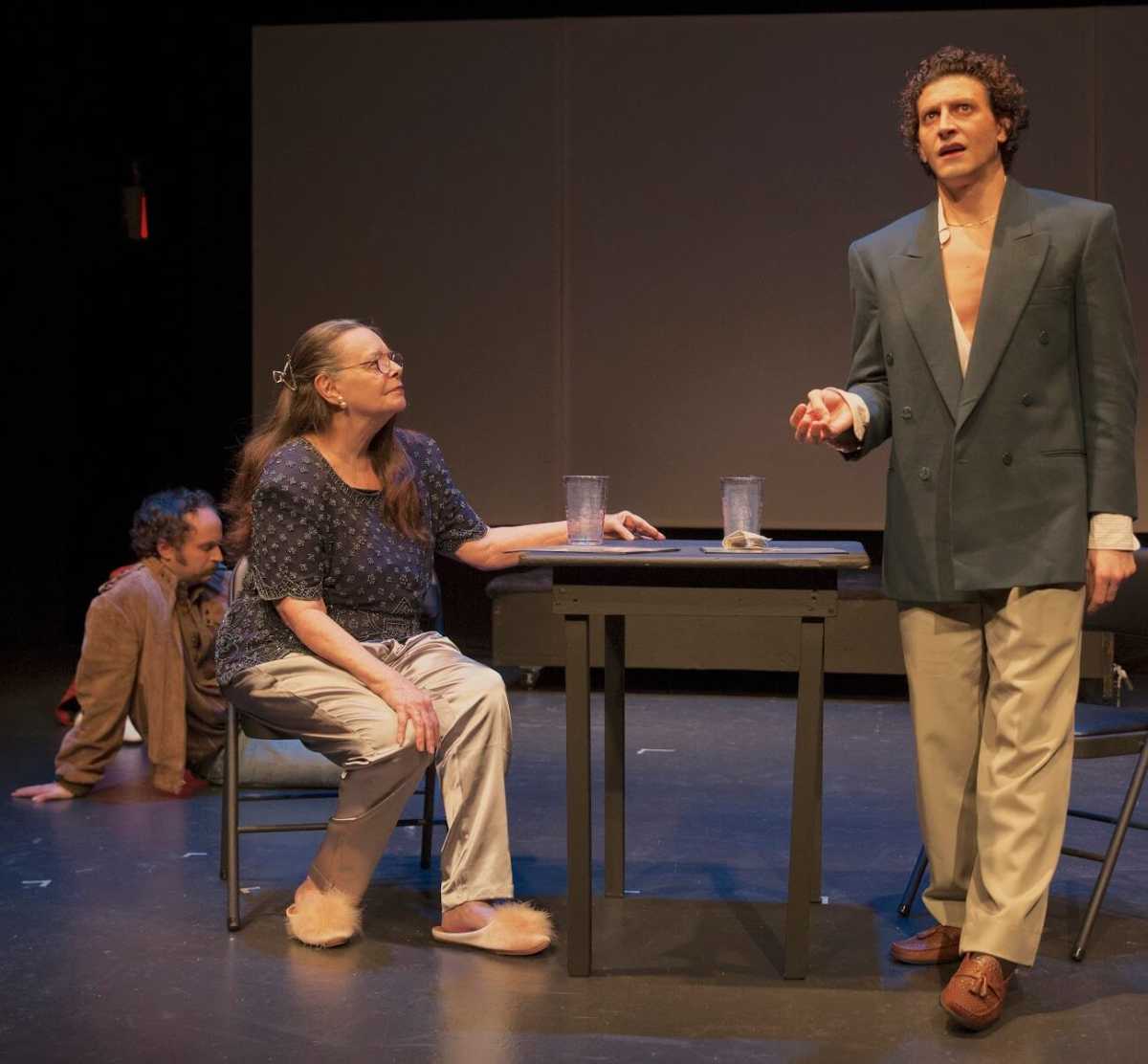Who knows if Eduardo Machado intended the title of his play to be “Not About Me,” ironically because it’s about little else, down to a main character named Eduardo. It could, perhaps, be called a “memory play” given the structure of the piece with Eduardo introducing various scenes from a contemporary perspective. But it is devoid of the perspective or wisdom memory typically brings. Unlike Tom in “The Glass Menagerie,” easily the most famous work in the genre, whose tragedy underscores the illusion of the American Dream, in Machado’s play, Eduardo has no such metaphor. He is a young, arrogant narcissist at the outset, and at the end, he’s an old, arrogant narcissist. It’s hardly worth the two-plus hours journey to go essentially nowhere.
The bulk of the piece is set against the developing AIDS crisis in New York in the early 1980s. Eduardo is married to a much older woman who is bankrolling his early efforts to become a writer. He is, however, bisexual, and has a group of gay friends who go to discos and sleep with each other. Eduardo, somewhat desperately, tries to fit in with them, even falling in love with a director, Gerald. He also has an affair with an actress, Donna, who abandons Eduardo when he won’t be healed of his gayness by an evangelical cult. For some reason, there is also a subplot where Eduardo is rehearsing a Tennessee Williams play with an older actress Marjorie, even as she is dying of liver cancer. The play is almost entirely expository, and AIDS is nothing more than a plot point. The gay characters are reduced to whiny queens besotted with Sondheim, and the emotional toll of a growing plague is largely ignored other than the fear that they would get it.
The actress Marjorie is the most interesting character at the performance I saw, with great sensitivity shown by Sharon Ulrick. Though the dramatic purpose of this character is unclear in the context of the play, Majorie’s need for art in the face of death is both subtle and heartbreaking, showing what the play might have been.
In presenting Eduardo as an anti-hero who seeks only to serve his own libido and ambition, playwright Machado is drawing on such classic influences as the opera’s “The Rake’s Progress” or even “Don Giovanni,” where the hero’s self-indulgence leaves chaos in his wake. Unlike either Tom Rakewell or the Don, however, Eduardo doesn’t pay a tragic price for his selfishness. It’s an interesting twist, but it’s not clearly developed. Nor does Eduardo have the kind of appealing “bad boy” character that makes this type of character interesting. Educardo is merely a strident brat who is tiresome almost from the very beginning. At the end, now in the present, Eduardo somewhat grudgingly says he’d make amends for his bad behavior and throws in a reference to COVID. Dramatically, this makes little sense, but according to the production notes, this play was written as a response to the pandemic, though that idea, too, is undeveloped — and unclear.
Machado’s direction is as unfocused as the script. The performances, with the exception of the aforementioned Ulrick, lack depth; the actors simply don’t have enough to work with. Mateo d’Amato as Eduardo is thus reduced to a one-note performance that is loud and off-putting. Perhaps it’s the playwright’s intention, but it’s impossible to feel any kind of sympathy for this character. Heather Velasquez as Donna the actress is tasked with making sense of the character, and she tries valiantly. The rest of the company might as well be just reading their lines cold. No doubt these are all talented actors, but try as they might, they can’t overcome the weakness of the script or direction.
Machado, of course, is entitled to his memories, but turning them into art with a more universal appeal is what makes a play. AIDS inspired a whole genre of plays. “As Is,” which was deeply personal; “The Normal Heart,” which was powerful agit-prop; or the more recent “The Inheritance” on Broadway and “Novenas for a Lost Hospital” at Rattlestick, which chronicled the tragedy and insistent humanity that confronted AIDS, all provided rich characters and much-needed catharsis that went beyond what was on the stage. In its apparent self-absorption, Machado’s play leaves no room for anything other than himself.
Machado would have benefitted from the advice of famed playwright, actress, and director Elaine May. She said, “never leave out the audience.” It might have been all about something more.”
Not About Me | Theater for the New City | 155 First Avenue | Weds-Sat 8 p.m.; Sun 3 p.m. through February 5th | $18 | theaterforthenewcity.net or 212-254-1109 | 2 hours 15 min, 1 intermission


































